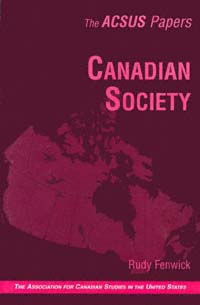| Like other advanced industrial countries, Canada has an urban, educated, healthy, and affluent population that enjoys one of the highest standards of living in the world. Canada also is plagued by many of the problems that are all too typical of the developed world, such as pollution, crime, drug use, and the persistence of poverty. Nonetheless, it has been an open question whether Canadians, unlike their counterparts in most other industrial countries, constitute a true "society" in the sociological meaning of the term, and are not just an aggregate of people living in the same geographical space within the same political boundaries. |
| Sociologists maintain that a true society has, first, a set of institutions, values, and norms supporting a subjective identify different from that of other societies; and second, some degree of internal cohesion with respect to these characteristics. Although most countries periodically face problems in maintaining their identity and internal cohesion, history and geography have conspired to make both problems more acute and more continuous in the case of Canada. |
| A distinct Canadian identity was slow to emerge because many Canadians were reluctant to sever ties with Britain. Canada's identity and national cohesion are made even more problematic by its relatively small, geographically dispersed, and culturally heterogeneous population. Indeed, it may be more appropriate to describe Canada as not one but two societiesEnglish and French. Since the British conquest of New France (Quebec) in 1759, Canada has had to face the problem of integrating not only two languages but two religions and two cultures with two visions of nationhood. Added to this division is the great diversity of ethnic groups within English (or more appropriately "non-French") Canada, as well as regional differences in economic activities. |
| The geographic proximity of the United States had a decisive influence on Canada. To be sure, the two countries boast of having the world's longest undefended border, across which people, goods, capital, and culture flow freely. However, from Canada's perspective, such a close, friendly relationship with the "giant next door" is not all to the good. Many Canadians fear their country has become so inundated by American culture and so economically intertwined with the United States that not only is their identity threatened, but their national sovereignty is undermined. |
| Everywhere in the world, geography and climate help determine where people will live, how they will interact with one another, and what kind of economic |
|





